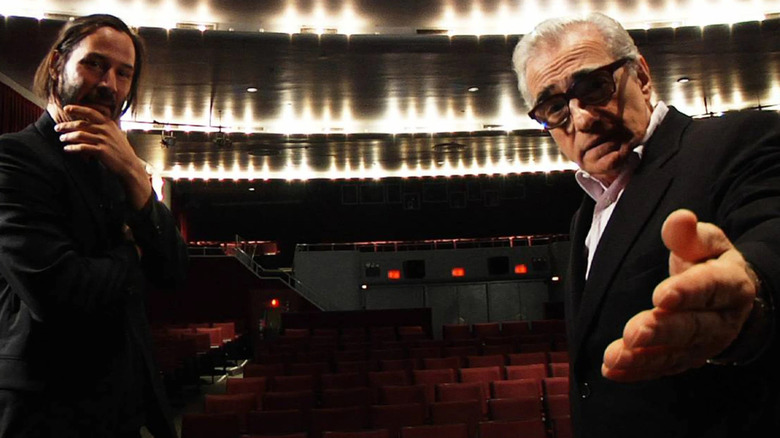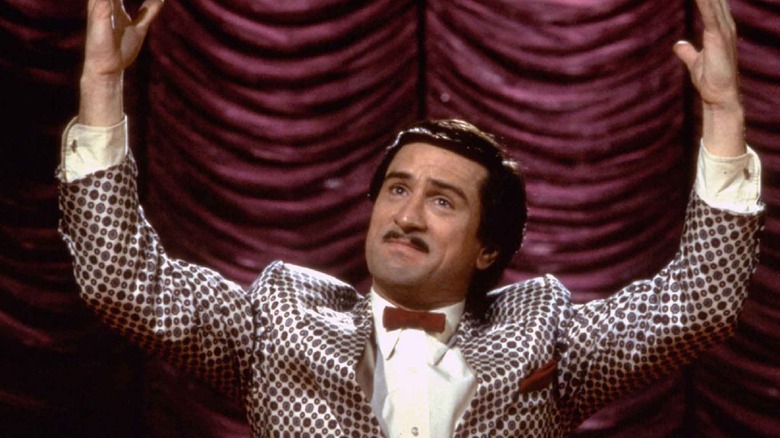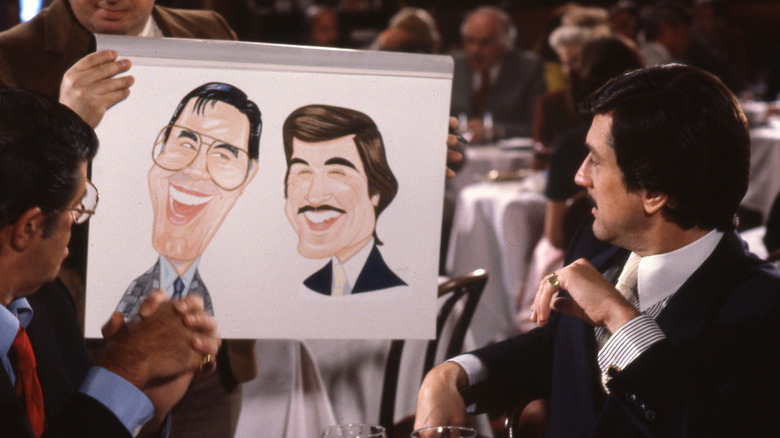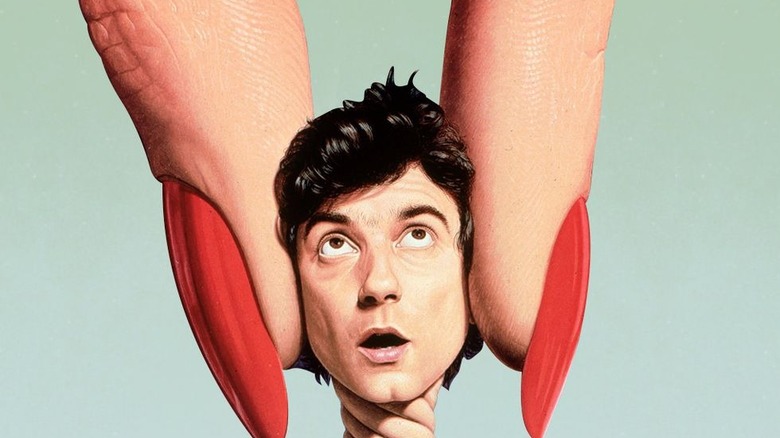Hollywood Used To Think Of Martin Scorsese As Box Office Poison
In recent years, Martin Scorsese has been considered something of an elder statesman in cinema. In addition to his continued production of staggeringly impressive films — his last three films, "The Wolf of Wall Street," "Silence," and "The Irishman" are grand contemplations about greed, faith, and old age, respectively — Scorsese has also long advocated for the discovery of new cinema from around the world. His World Cinema Project, released through the Criterion Collection, has endeavored to make some of the globe's greatest art available to the public. Scorsese has also served as executive producer on a good number of independent movies and TV projects since the 1990s, eager to bring new voices to the fore.
The director was also the subject of a bizarre firestorm of ire when he declared enormous special effects-driven blockbusters to be more akin to thrill rides than to cinema, causing fans of said blockbusters to deride him on social media. Additionally, Scorsese wrote an essay for Harper's wherein he lamented the modern landscape and curators' habit of reducing cinema to "content."
Despite Scorsese's undeniable expertise in film, his devotion to the medium and its purity, as well as his longstanding reputation among many cineastes as one of the best directors currently working, he wasn't always welcomed with open arms by the Hollywood establishment. Not all of Scorsese's films were hits, nor were they always welcomed by critics or awards bodies. Every once in a while, his films would even court controversy, as with his 1988 film "The Last Temptation of Christ," which was protested by Catholic groups.
Back in 1983, Scorsese watched an episode of "Entertainment Tonight" that hollowed him out and left him feeling like he was about to be blackballed from filmmaking altogether.
The King of Comedy
Martin Scorsese's "The King of Comedy" is about a delusional stand-up comedian named Rupert Pupkin (Robert De Niro) who meets an idol of his, Jerry Langford (Jerry Lewis). Pupkin immediately assumes they are now friends, but he's still rejected for a spot on Langford's TV talk show, leading him to kidnap Jerry, demanding a TV spot as ransom. Bafflingly, the studio and the FBI agree to this. A penetrating line of his act is "Better to be king for a night than a schmuck for a lifetime." Despite his crimes, Pupkin ends up achieving fame and scores a book deal. Scorsese was openly criticizing how gross materialistic celebrity culture of the 1980s had become, pointing out that media attention had become life's new endgame. Talent didn't matter as much as a clumsy form of media savvy, and a type of insanity that is exciting to film.
The film was described as "arid, painful, and wounded" by Roger Ebert, though also "not a bad movie." Other critics cited its bleak tone. Adam Smith at Empire said it sat awkwardly between horror and comedy, unable to commit to one or the other. Regardless of its reception, "The King of Comedy" has persisted in the popular consciousness, even inspiring a spiritual remake, 2019's "Joker," which borrows many tone and story elements transposed into the Batman universe.
A reputation ruiner?
"The King of Comedy" tanked at the box office. Martin Scorsese, talking to Esquire in 2020, recalls vividly the time he heard about the financial status of the film, and how the news hit him at just the wrong time in his life:
"I remember it was the last day of 1983. 'The King of Comedy' had come out earlier that year. And on New Year's Eve, I was getting dressed to go to Jay Cocks' house. I had the TV on in the background and for some reason it was tuned to 'Entertainment Tonight.' And I heard them say as sort of a tease before they went to commercial, 'Coming up: The Movie Flop of the Year!' So I sort of stuck around to see what it was. What was the 'Movie Flop of the Year?' And when they came back, they said it was 'The King of Comedy!' I was the flop of the year! And on top of that, I had been planning to make 'The Last Temptation of Christ,' which had just been canceled on me. So it was a double whammy. I had nothing lined up next. And I knew I was going to have to start all over."
The news of the film's failure initiated an existential crisis in Scorsese. He was 41, had already directed seven films, including "Alice Doesn't Live Here Anymore," "Taxi Driver," and "Raging Bull," scoring a total of 15 Oscar nominations between the three, so he had a reputation to lose. Was "The King of Comedy" going to be the thing that ruined Scorsese's reputation forever?
After Hours
Rather than continue to push on "Temptation," Scorsese elected to make a smaller-scale movie, something that was a little more humane, and perhaps a little less pessimistic than "The King of Comedy." In 1985, Scorsese released "After Hours," a relatively low-concept, indie-style comedy film about a poor sap (Griffin Dunne) in what is, more or less, the worst night of his life. Traversing the streets of New York, reading from Henry Miller's "The Tropic of Cancer," Dunne has many colorful misadventures surrounding a planned date with Rosanna Arquette in the middle of the night in SoHo. Dunne's suffering is pronounced, but comedic. He becomes a punching bag for the powers of fate, something most of us can relate to.
A poem about New York grime and a showcase for Dunne's talents, "After Hours" put Scorsese back on the map in a hurry. He won Best Director at Cannes, and "After Hours" won Best Feature at the Independent Spirit Awards.
Scorsese finally did complete "The Last Temptation of Christ" in 1988. "The King of Comedy" is well-situated in the popular consciousness, he reconnected with his roots, and he completed a project he had been toiling on for years. It seems like Scorsese ultimately won the day.



